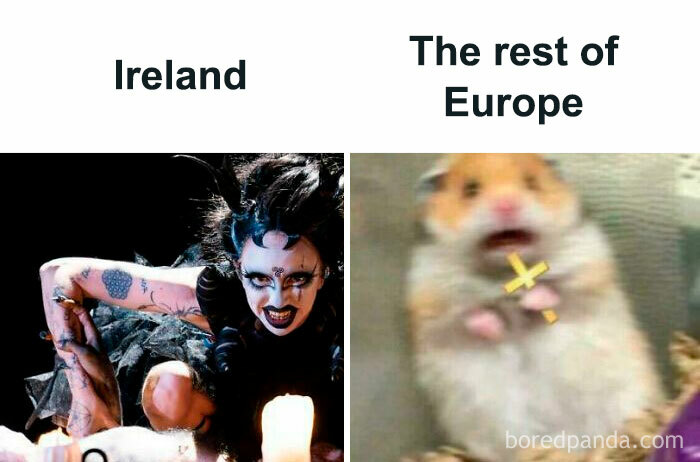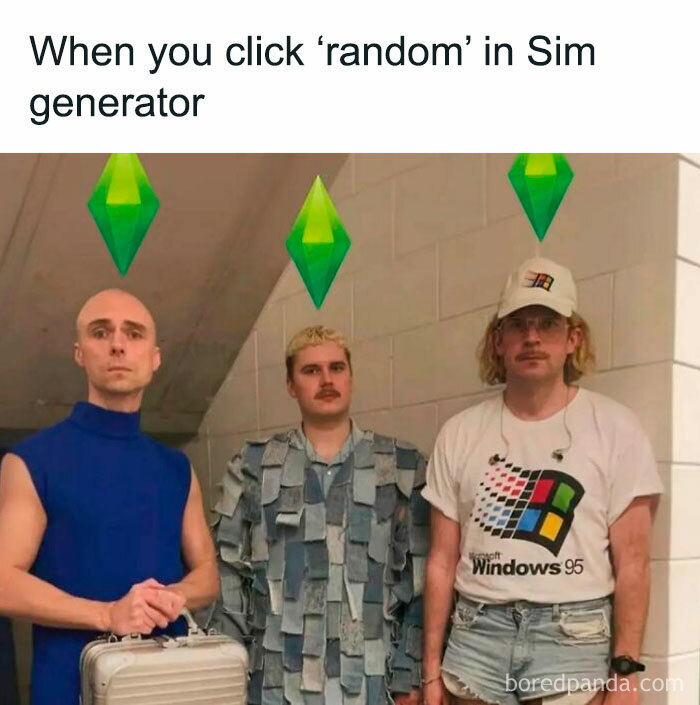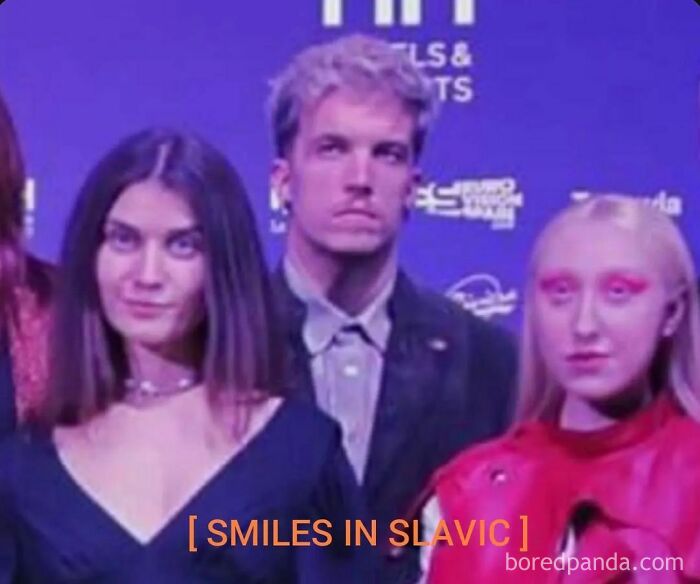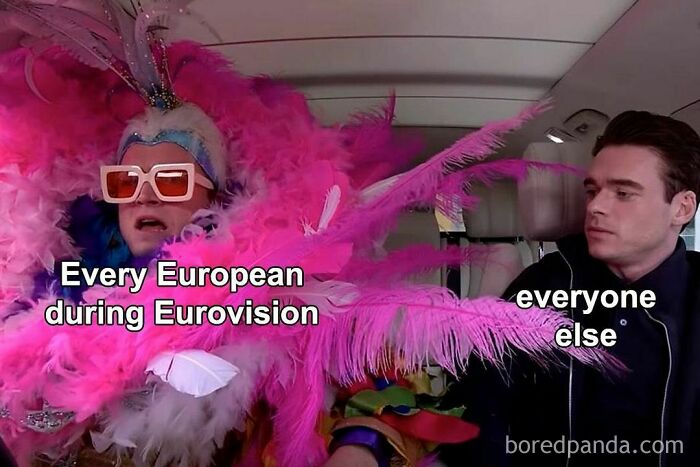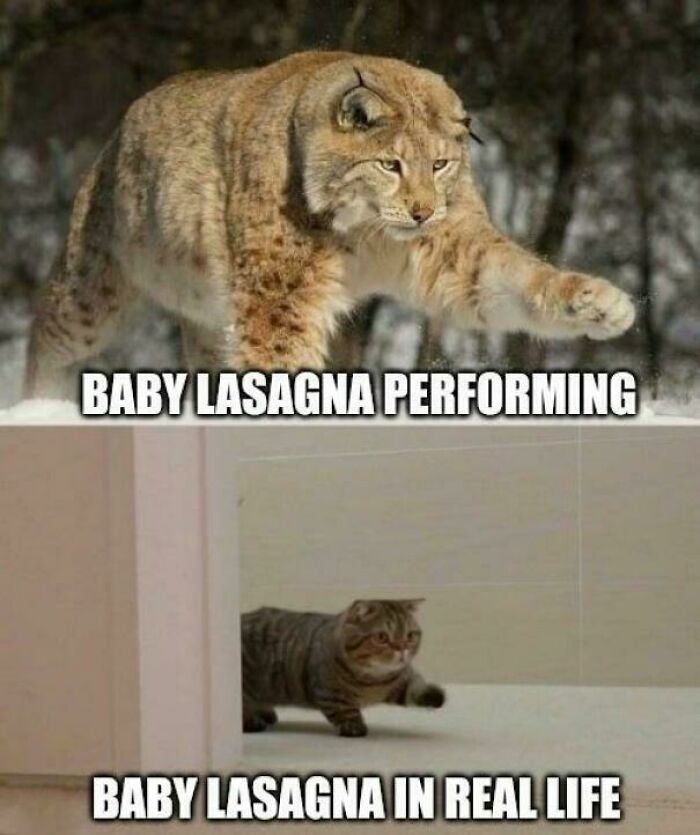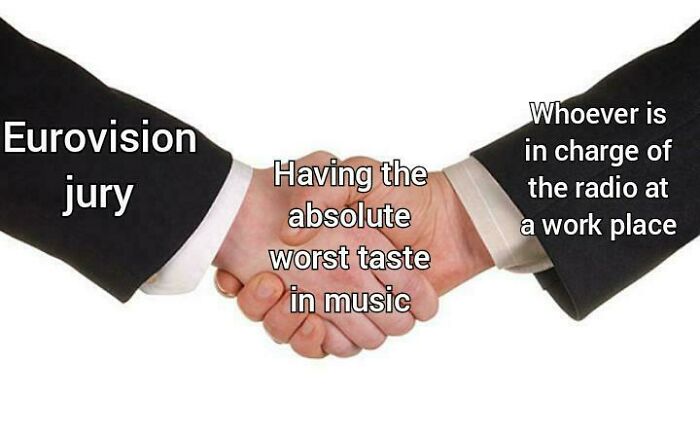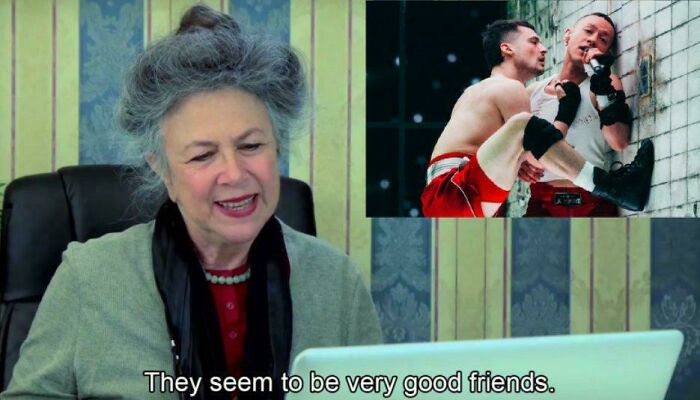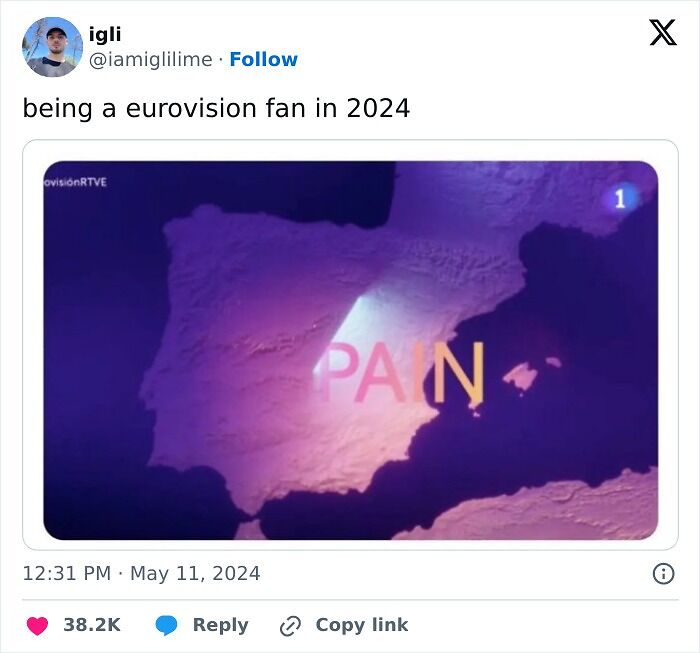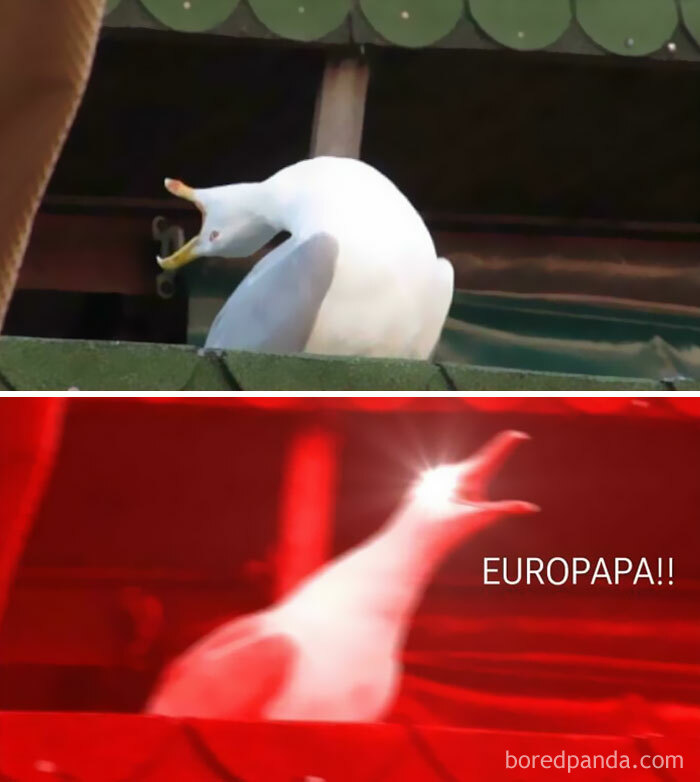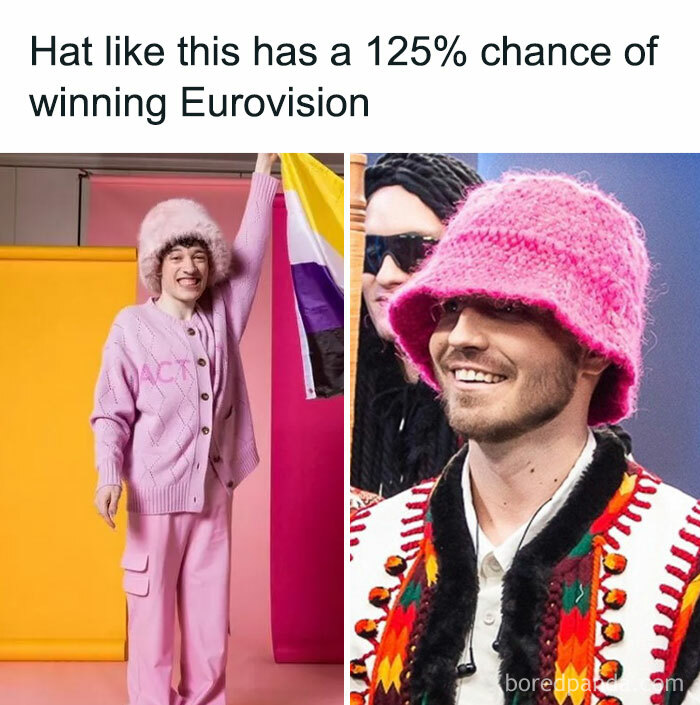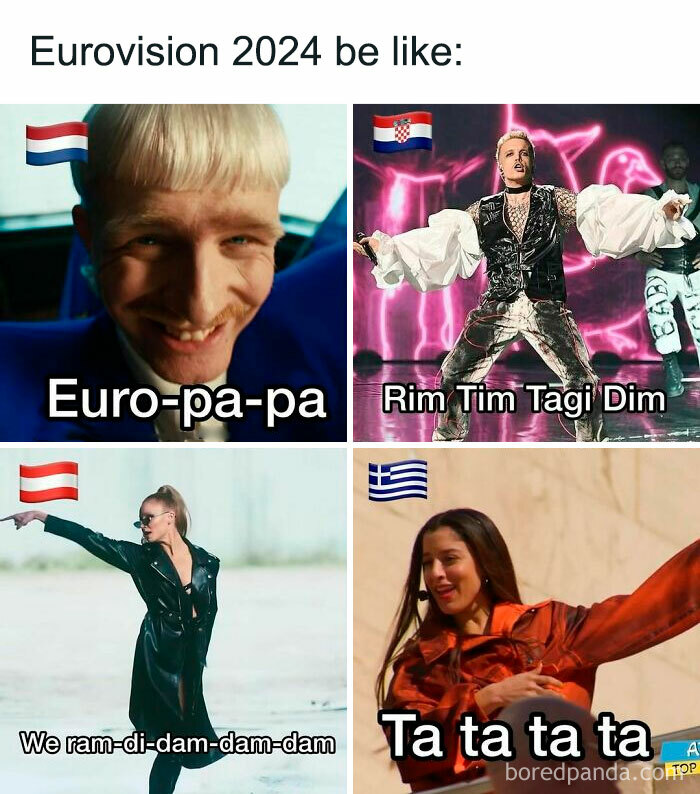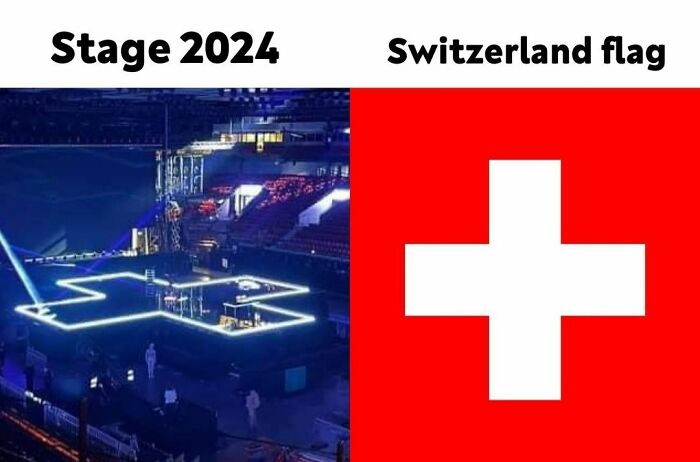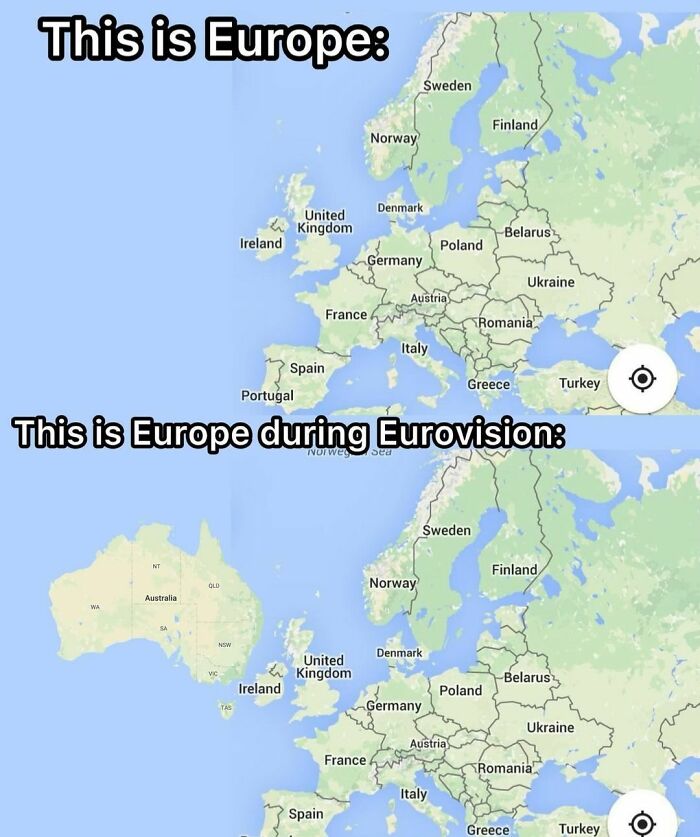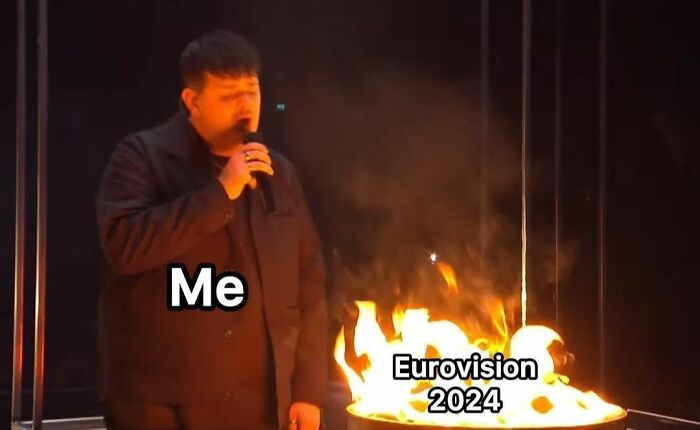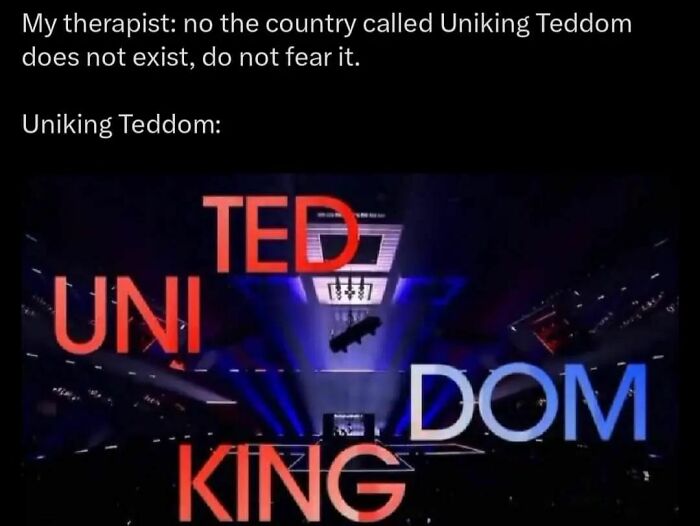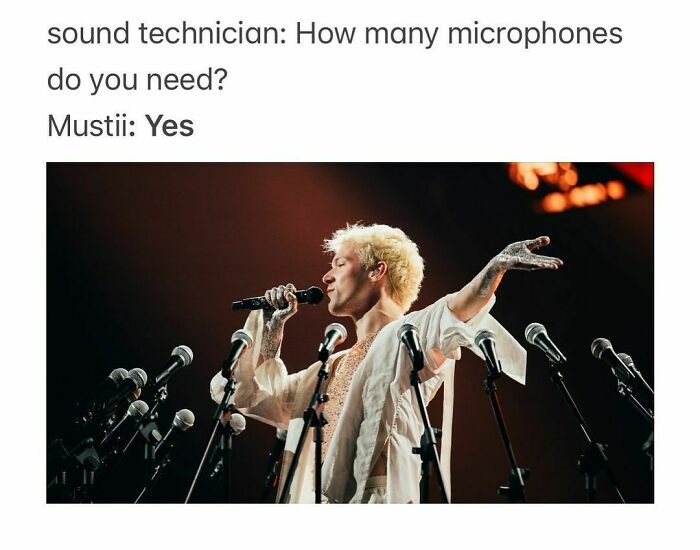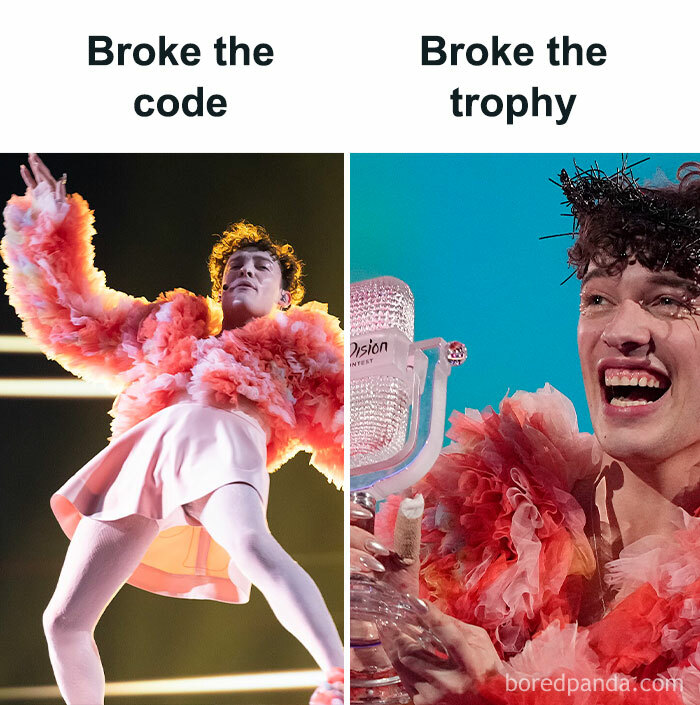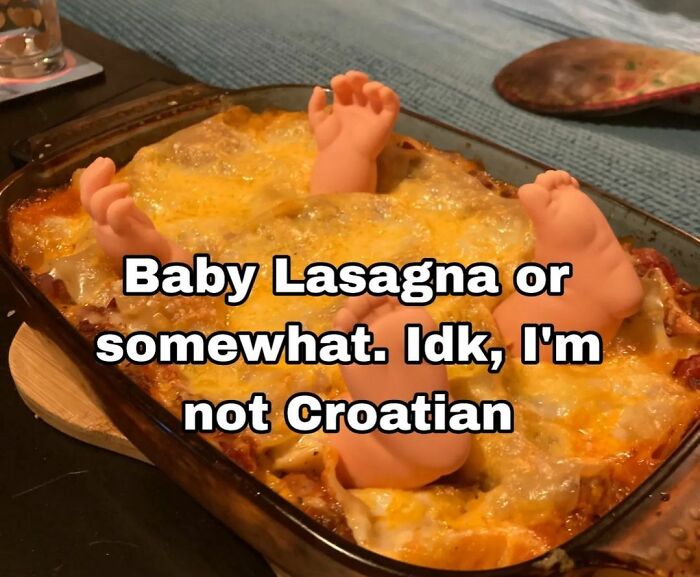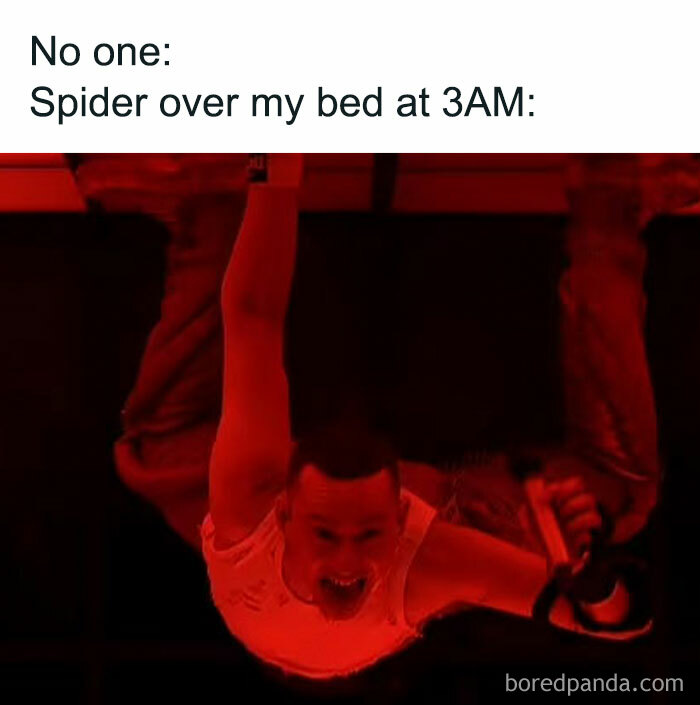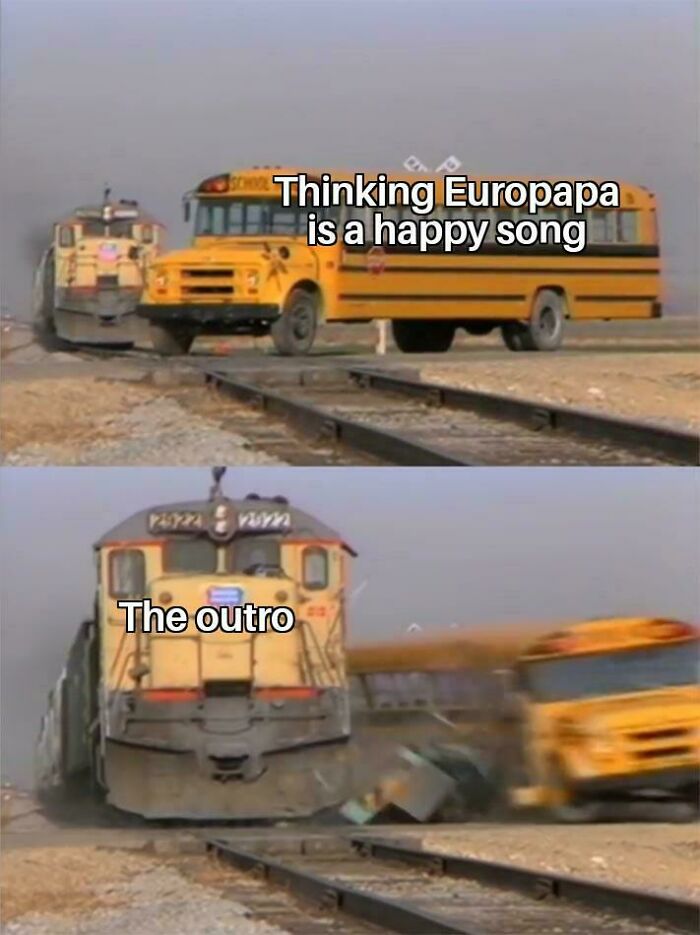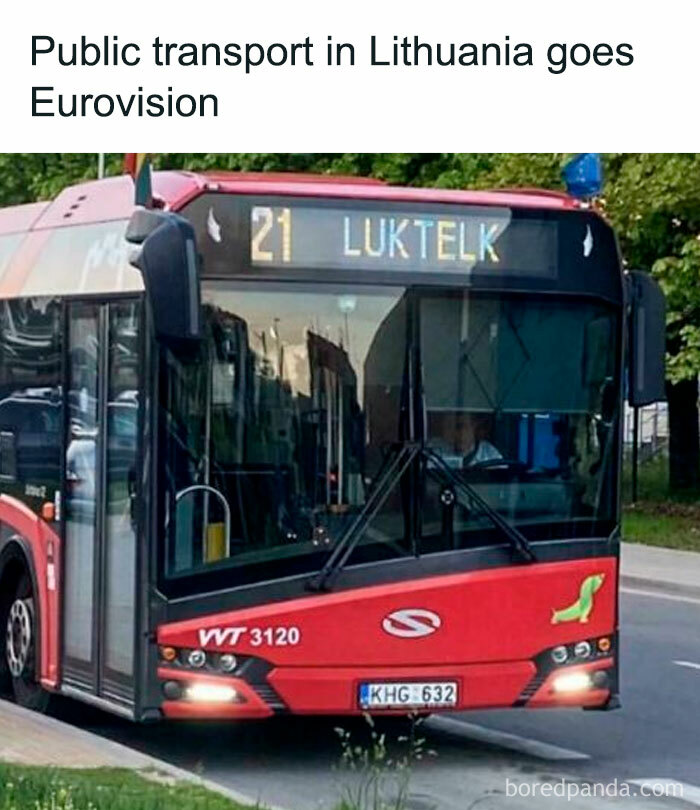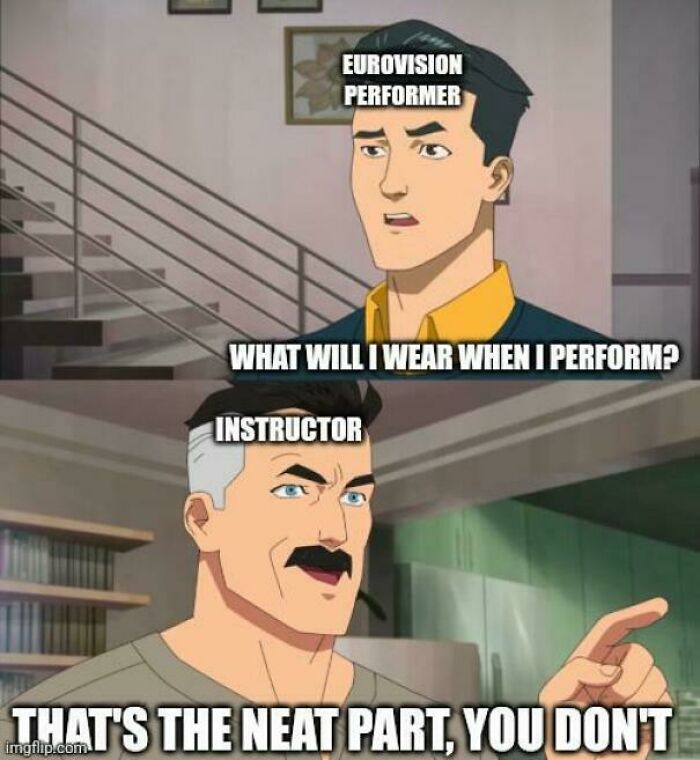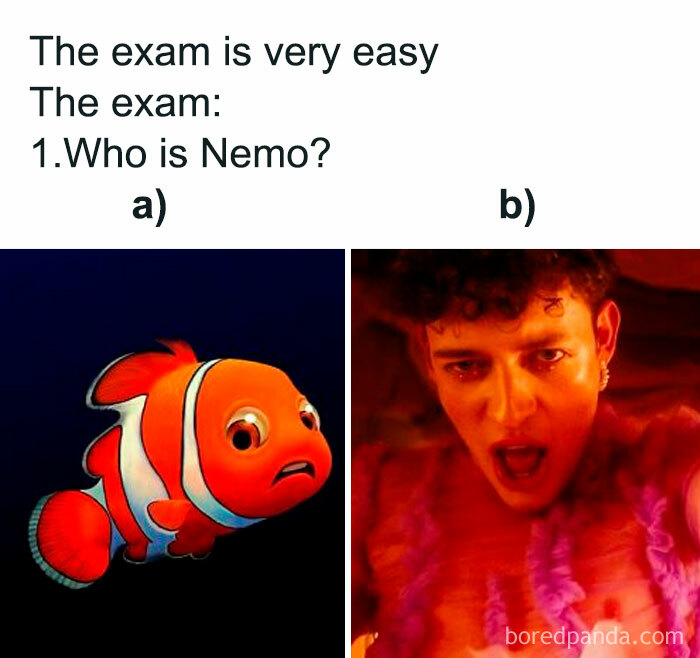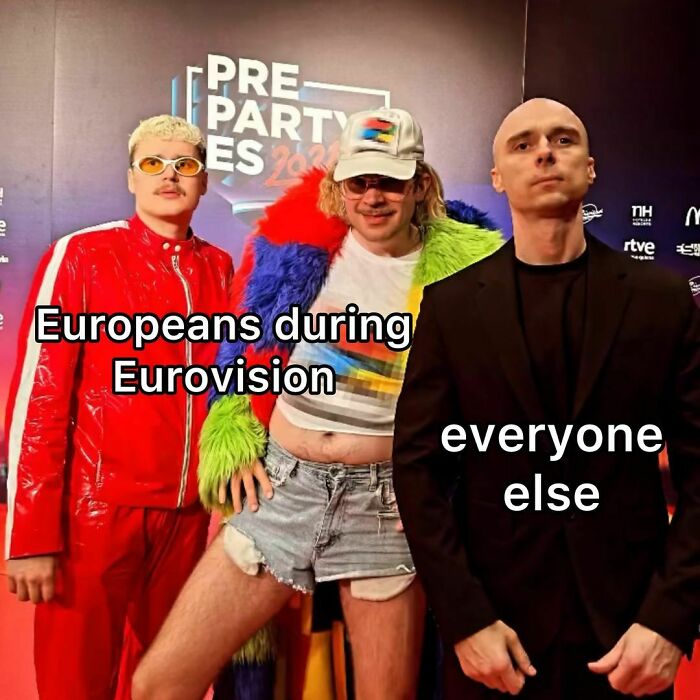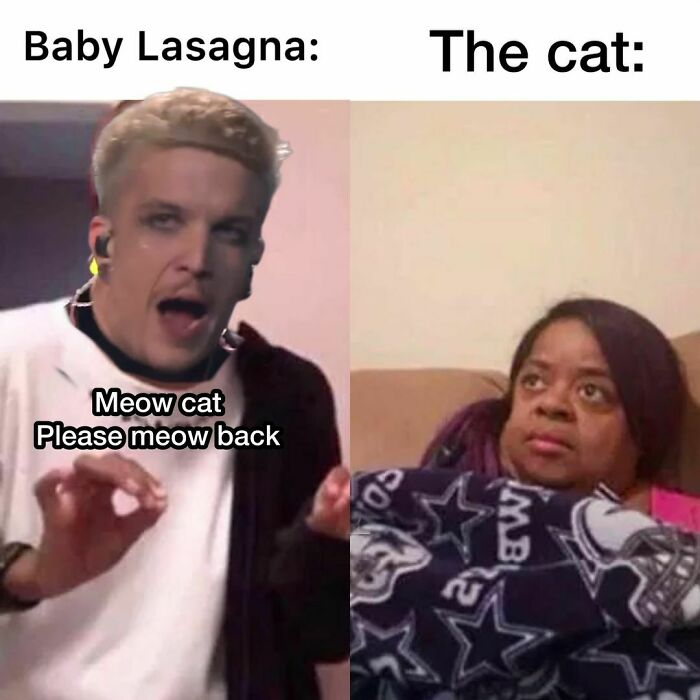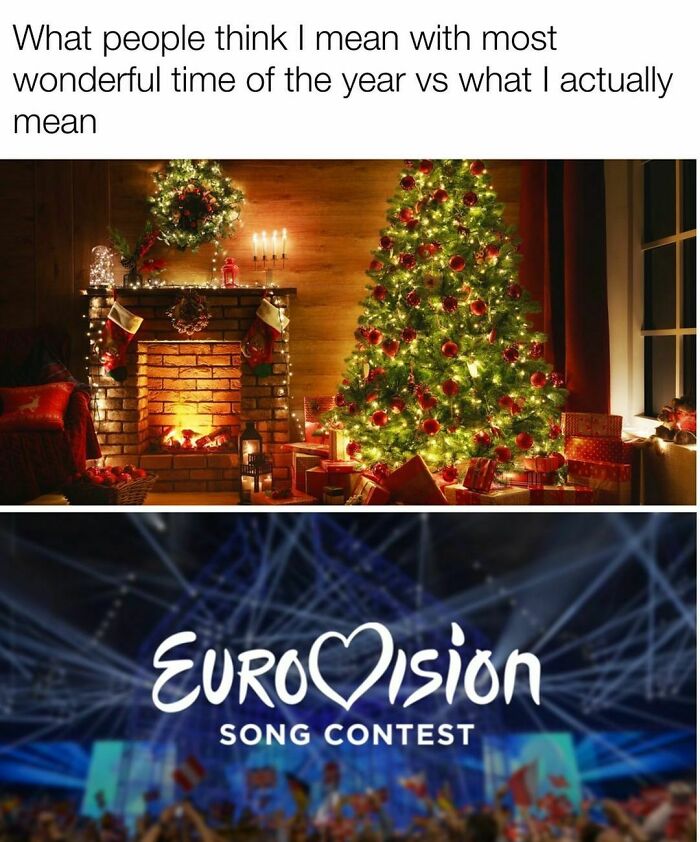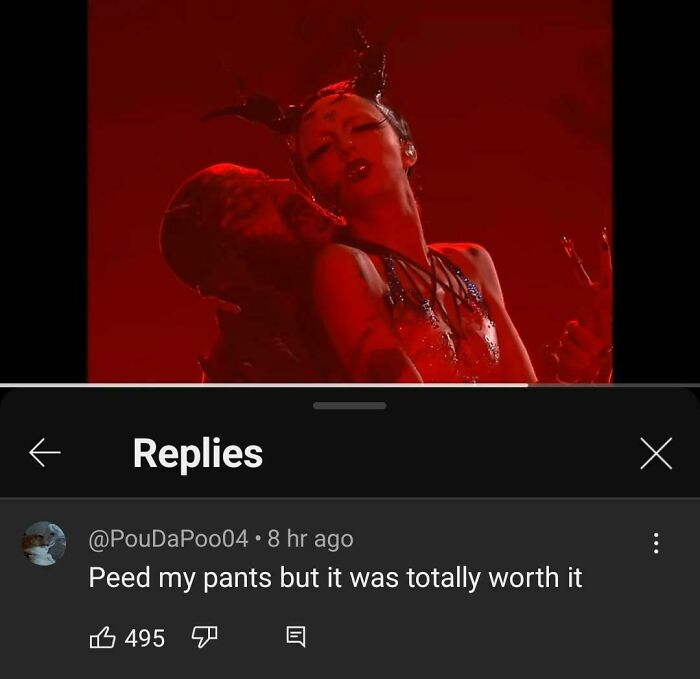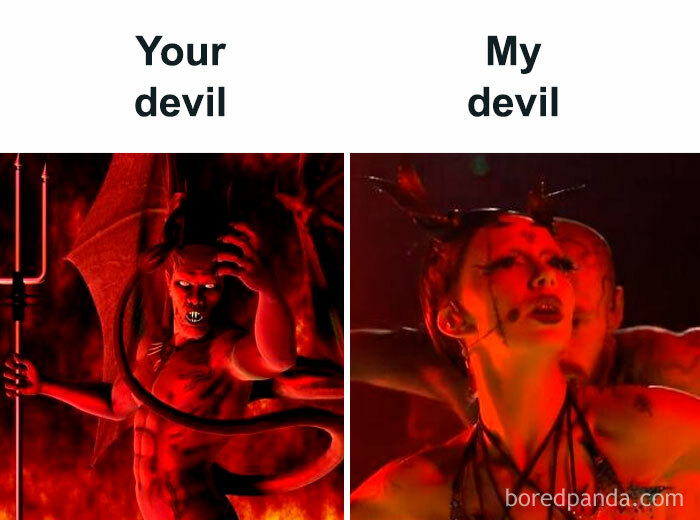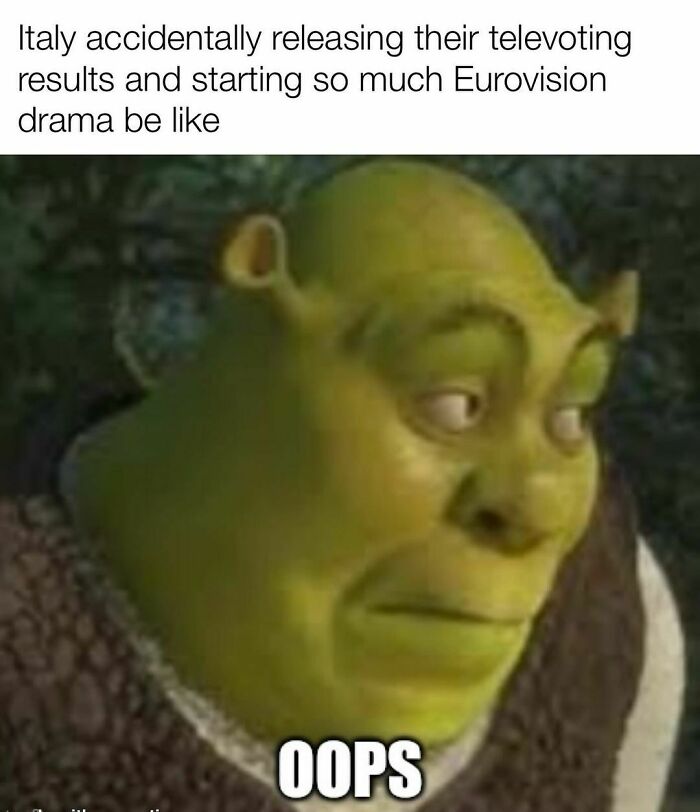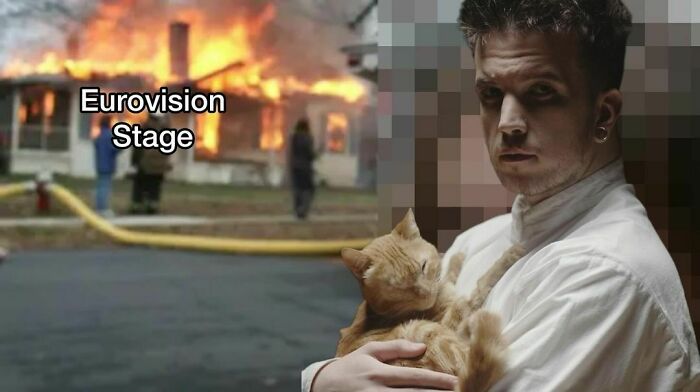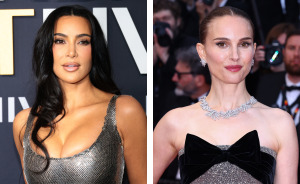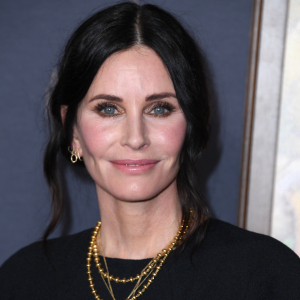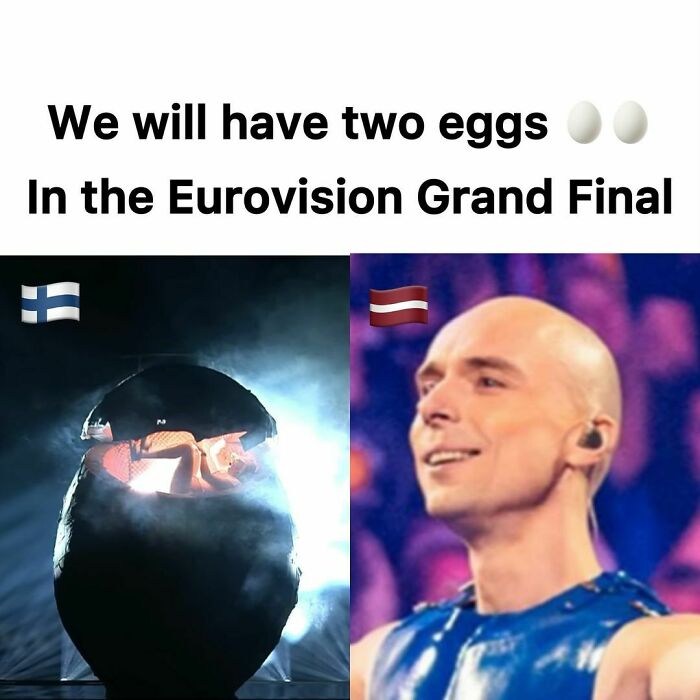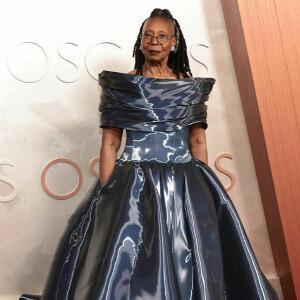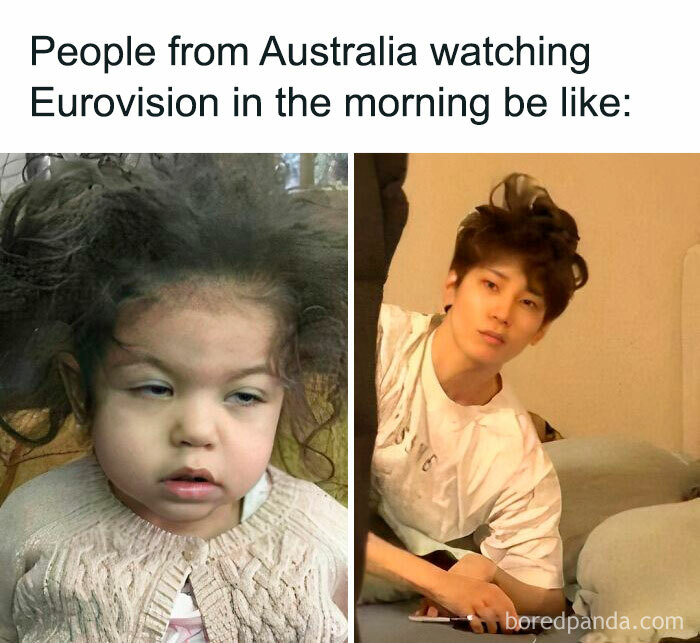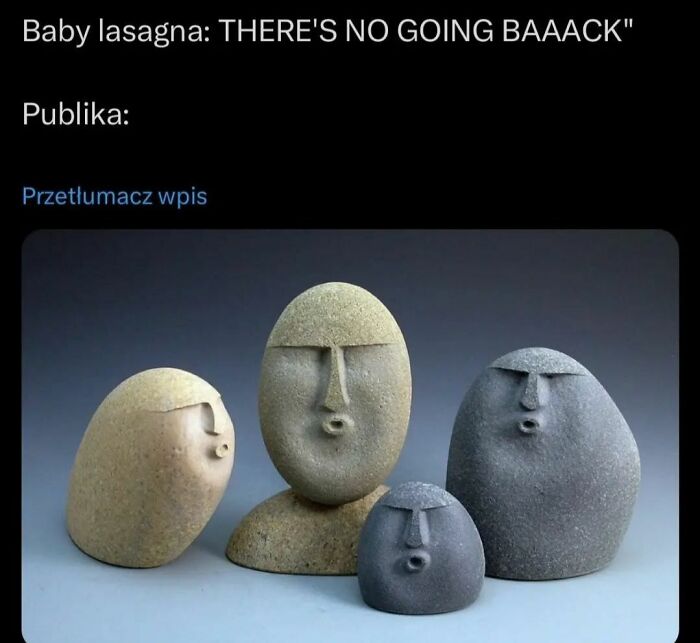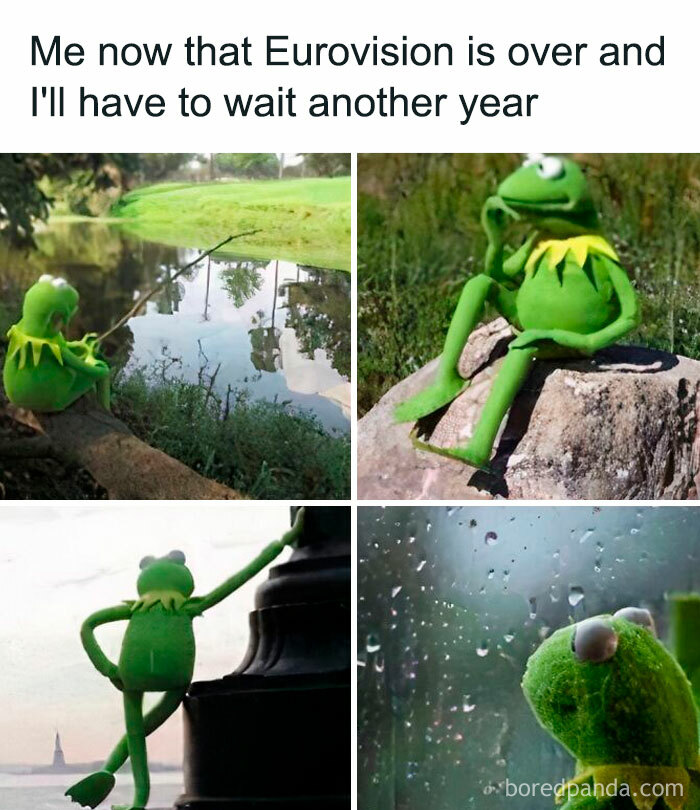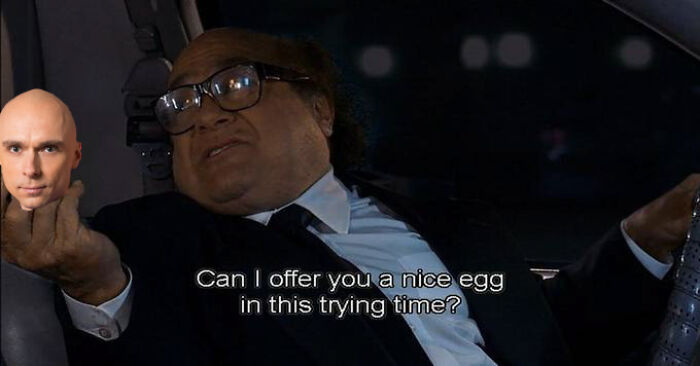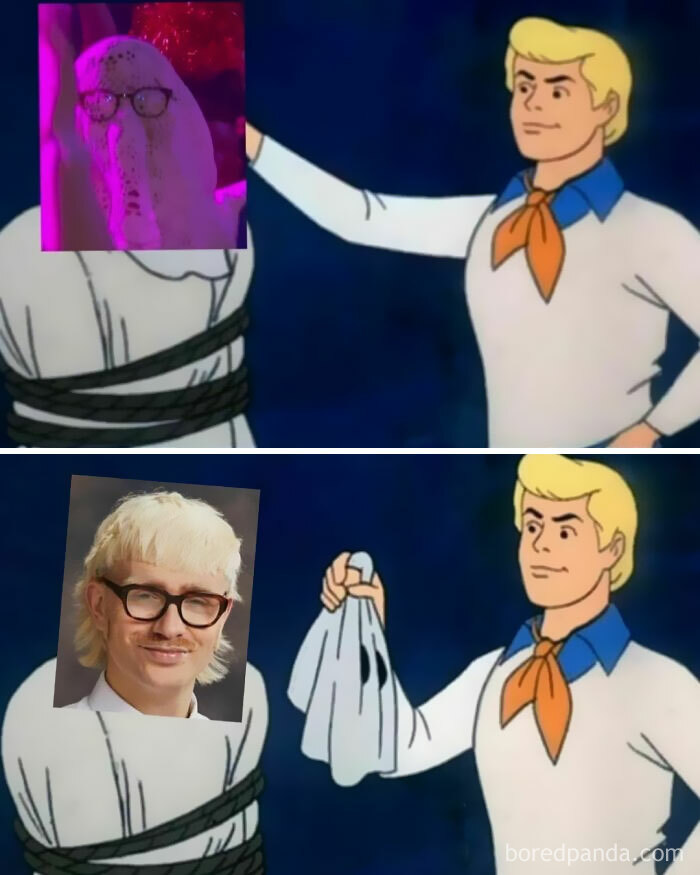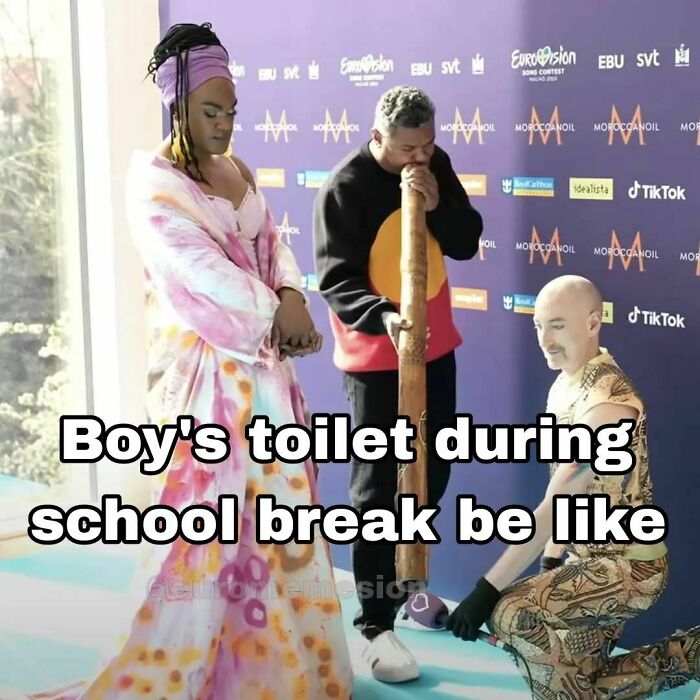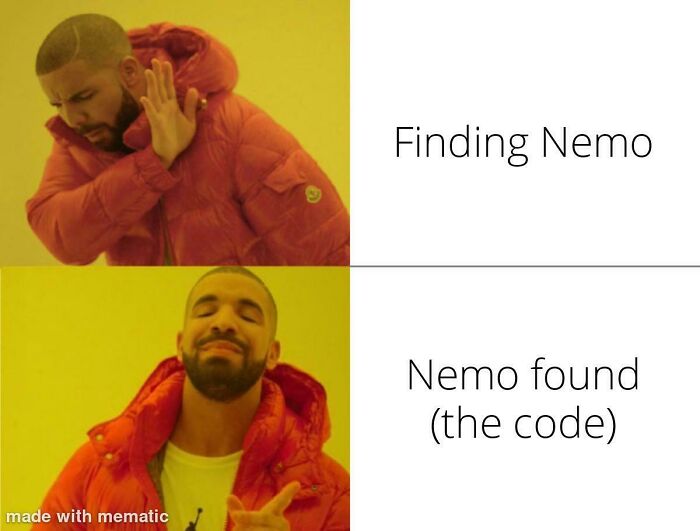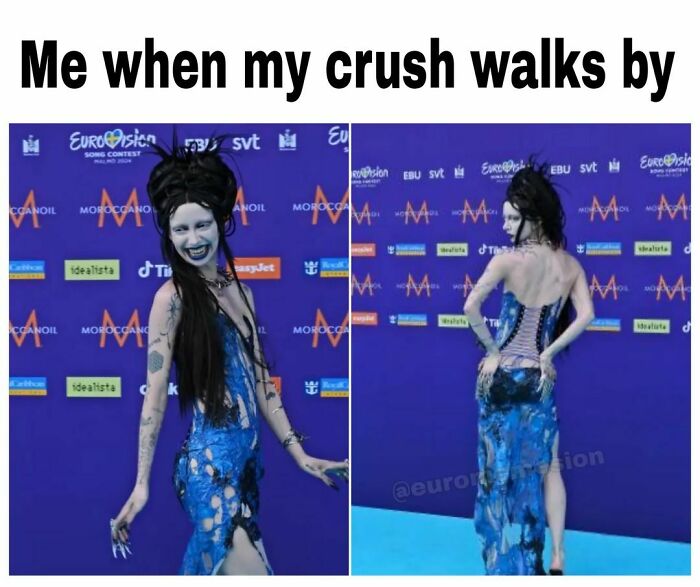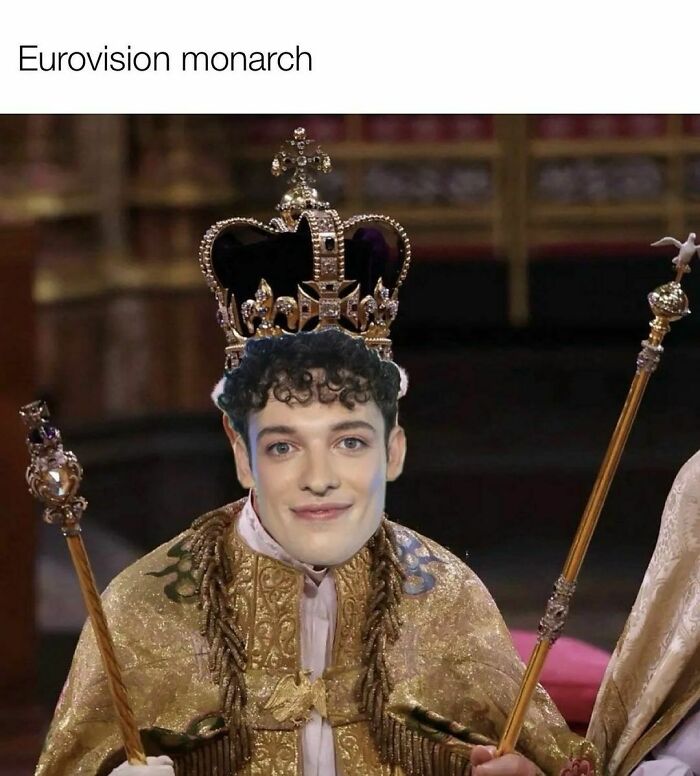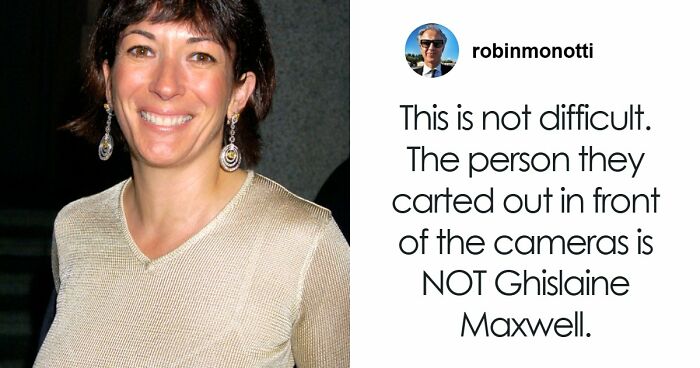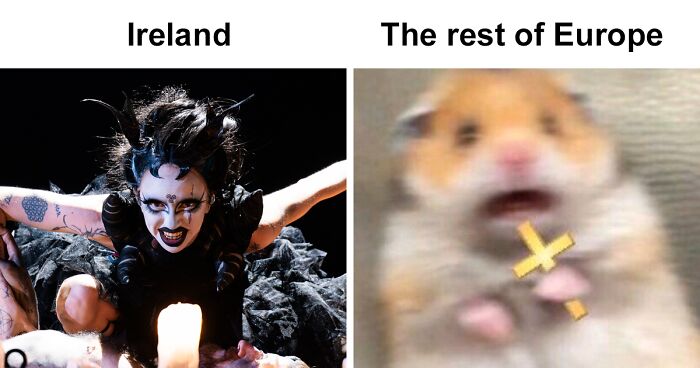
30 Memes And Jokes To Celebrate The Eurovision Song Contest Of 2024
Interview With ExpertAnother Eurovision Song Contest has wrapped this Saturday. The artist Nemo, with the song The Code, is bringing the trophy back to Switzerland. Congratulations to them and the Swiss! As always, the contest wasn’t just about music: there were plenty of laughs, reactions, and memes this past week.
We’ve collected the funniest pics that perfectly summarize what the 2024 Eurovision was all about. From roasting the songs, the costumes, and the lyrics to everyone still being baffled as to what the heck Australia was doing there – Eurovision fans had something to say about all aspects of the contest.
And what about you, Pandas? Did you watch Eurovision this year? And which performer did you root for? Let us know your opinions in the comments, and don’t forget to upvote your favorite reactions!
Bored Panda reached out to one of the meme pages we're featuring here, Eurovision Memes. The creator kindly agreed to tell us more about their love for the song contest and how it manifested into a meme page.
We also chatted about this year's Eurovision with online commentator Gabe Milne. He has a YouTube channel, ESC Gabe, where he discusses the contest. He's also a member of ESCunited, a news source on everything Eurovision-related, so he’s a legit superfan. Check out both conversations below!
This post may include affiliate links.
"The birth of the Eurovision memes page was sparked by a simple yet profound realization: Eurovision, with its flamboyant performances, quirky acts, and sometimes questionable song choices, is a goldmine for humor and satire," the creator tells us. "It's a spectacle that invites laughter as much as it does applause. So, the decision to start a page dedicated to Eurovision memes was driven by the desire to celebrate and share the delightful absurdity of the contest in a fun and relatable way. After all, spreading joy and laughter is always cool and good in my book!"
As Eurovision has become quite a global event in recent years, the meme page too gets a diverse array of fans. "Each [have] their unique perspectives and approaches to engaging with the contest's memes," the page's admin tells Bored Panda. "Both In Asian countries and African countries, where Eurovision might be more of a novelty or niche interest compared to its fervent following in Europe, fans often approach Eurovision memes with a sense of curiosity and appreciation for the cultural quirks and extravagant performances," they explain.
"While the specific reactions and engagements with Eurovision memes may vary across different regions and cultures, the universal language of humor and entertainment ensures that they can be appreciated and enjoyed by fans from all corners of the globe."
Naturally, we also asked the creator if they were happy with this year's winner. "I'm personally thrilled with Switzerland's victory. I voted for them, but I also cast my votes for Croatia and Ireland. Their performances were exceptional and widely acclaimed," the person behind Eurovision Memes tells us. "Music has this incredible power to bring people together, transcending boundaries and differences. It's all about spreading love, peace, and of course, a good dose of memes!"
They were amazing. If the Finns are the happiest people in the world, we all need to be copying them, I guess!
Gabe Milne has been a fan of Eurovision since 2008 when he was just a young kid. "I watched it by coincidence and was totally transfixed," he tells Bored Panda. "I had always loved different countries and languages as a kid, and it ticked all my boxes. I watched every show in 2008 and have been hooked ever since, following the show itself and the national selections beforehand. I can't get enough of it," Gabe tells us, solidifying his superfan and Eurovision expert status.
He says that Eurovision is such a unique and beloved event simply because there is no other like it. "It's not like a sports event where each country is competing at the same thing; with music, every country brings something different, the sort of things that usually would never be seen next to each other on a stage. You see performances like Ireland's Bambie Thug this year, which was totally unlike not just any other Eurovision performance but unlike almost anything ever seen on prime-time TV," Gabe tells us.
"The fan community is totally unique," he goes on. "The network of different fan sites and blogs, traveling not just for the contest but for each of the national selection shows, too. It's a cliche to say it, but Eurovision is a family. Once you're in, it holds you close. Artists talk about this for years after they participate."
Sarcastic smile, no smile and Frogcreature from the Andromeda galaxy smile.
"Every European" is quite a bit of an exaggeration. "Everyone else" too, probably. Possibly lots of "yawns" on both sides.
Naturally, with its immense popularity, come haters or simply people who have misconceptions about Eurovision. Gabe dispels two of these: that the result is entirely political and that the songs themselves are plain bad.
Regarding the first one, Gabe says that Ukraine's win in 2022 might be arguable. "But Sweden, Switzerland, the Netherlands, and Italy are hardly known for having legions of neighbors ready to vote for them. Voting is sometimes cultural – we vote for things that chime with us and that we recognize. That's why countries often vote for songs sung by neighboring countries or in languages that are the same or similar."
When it comes to people bashing the artists' singing abilities or the quality of the songs, Gabe says that one only needs to listen to them and watch the live performances, and they'll probably change their mind. "It's just not true!"
Gabe is quite happy with the way this year's contest turned out. "I was blessed this year because two of my top 3 favorites – Croatia and Switzerland – occupied the top two spaces," he says. "My biggest favorite, though, was Estonia. I was doing their dance all week and had the opportunity to interview them as well. I knew they were never in with a shot of winning – in some ways, that makes the show a lot easier to watch..."
In a post-win bliss, Nemo accidentally broke the trophy (and their thumb!) on stage. But not to worry – he got a brand-new one later, so now, he technically has two. The contestant who was extremely close to winning was Croatia's artist Baby Lasagna, who came in second. Ukraine, France, and Israel were in third, fourth, and fifth place, respectively.
This year's winner Nemo, who identifies as non-binary and prefers they/them pronouns, competed with a song that was about their journey of realizing they're non-binary. After their win, Nemo expressed several times how important the fight for non-binary people is for them. They have even called out the Swiss government for not recognizing a third gender. During the press conference after their win, when asked who was the first person they'd wish to call, they said that it would be the president of Switzerland.
"Man going down the street in that hat, people know he's not afraid of anything." ;)
"In Switzerland, there's no entry for a third gender, and I think that's absolutely unacceptable, and we have to change that. I think we need to have representation in our politics as well. And it's really important that people feel seen and that we move forward like other countries do as well. So I think I would schedule a call with him."
The non-binary community in Switzerland is delighted by Nemo's win. The managing director of Transgender Network Switzerland, Sandro Niederer, told Swiss Info that Nemo's victory is very, very symbolic. Aside from bringing more attention to the discourse for and about the equality for non-binary people, "the fact that this is becoming visible is very valuable for our community," Niederer claims.
Even before the grand final on Saturday, Nemo expressed how grateful they were for the love and attention their song was receiving. "Knowing they like a song where I am, like, unconditionally myself, and I talk about the journey of finding myself and being non-binary and knowing that it touches them... it's really beautiful," the performer told AP News.
"Just being able to represent this community at Eurovision is amazing. And I'm so glad that I am not even the only one this year. You know, like that's even better because it just, it just shows that it's needed." The other non-binary contestant this year was Bambie Thug, the representative for Ireland. They brought home another kind of win for their country – the artist came sixth in the grand final, marking Ireland's highest place since 2000.
Bambie Thug was also very outspoken about the Israel-Palestine conflict. During the semi-final, the European Broadcasting Union (EBU) apparently prohibited them from going on stage wearing body paint with the words 'ceasefire' and 'freedom for Palestine' in Ogham script.
Jep, saw that.. 😬 the creator of [the statuette] must be 🤦♂️ but then the invoice is for 2 grand [to repair it]. Mistakes happens..
The Israel-Palestine conflict hung in the air in Malmo throughout the entire week of Eurovision. Thousands of protesters gathered in the central square on the day of the final to protest Israel's participation in the contest. "Here in Malmo a lot of people are from Palestine and many of their families are getting hurt [in Gaza and Palestine] and they just feel angry about the situation and how the Swedish government and the city has handled this situation," one of the protesters told Al Jazeera.
Videos from the crowd showed the audience booing Israel's entrant Eden Golan during her performance. Apparently, she got booed during rehearsals earlier in the week, and some people reported hearing cries of "Free Palestine!". Despite that, the performance received second place by televoters. Many people blamed the EBU for allowing Israel to participate in the contest at all. Martin Österdahl, the executive supervisor of the European Broadcasting Union, was booed when he spoke during the broadcast as well.
Perhaps the most controversial decision by the EBU was to disqualify the Netherlands after their entrant allegedly made "a threatening movement" towards a camerawoman. According to a statement from the Dutch broadcaster AvroTros, the artist apparently indicated that he wished not to be filmed, and the camerawoman didn't respect his wishes. They called the disqualification "very heavy and disproportionate" and lamented the disappointment this will have to Joost's fans.
Eurovision is becoming an increasingly safe space for LBTQ+ artists. Lithuania, for example, sent its first bisexual performer, Silvester Belt, to represent them in the contest. And while Belt doesn't want to be the poster child for LBTQ+ rights in Lithuania, he acknowledges that his being in the competition is a win for the community.
"I feel like it is a big thing for the rest of us. If I had someone like that growing up, I feel like it would have helped me not feel so sh*t,” he told Pink News. “At least it will bring up a discussion about it." The Lithuanian entrant was part of a sort of "LBTQ+ gang" of this year's Eurovision. Its members included the UK's Olly Alexander, Ireland's Bambie Thug, and the now-winner Nemo.
Speaking of the UK, they can't seem to shake off the Eurovision curse of last places and null points, can they? This year's entrant, Olly Alexander with the song Dizzy, apparently got no points from the televoters and came in at 18th place. This loss sparked countless memes about how the UK never seems to do well in the contest.
This comes as a huge disappointment for many UK Eurovision fans because this year, the UK was represented by an already-established pop star, Olly Alexander. Dizzy is the first release under his own name, as he previously released music under the British synthpop band Years & Years. The band has headlined arenas and festivals and collaborated with artists like The Pet Shop Boys and Elton John, so the UK fans put a lot of hope in a possible win. Or a higher placement, at least.
I'm going to (downvote) hell for this, but eff it: Oh look, they resuscitated Amy Winehouse!
I'm probably an uncultured swine for this but what the heck is eurovision
I'm probably an uncultured swine for this but what the heck is eurovision

 Dark Mode
Dark Mode 

 No fees, cancel anytime
No fees, cancel anytime 


